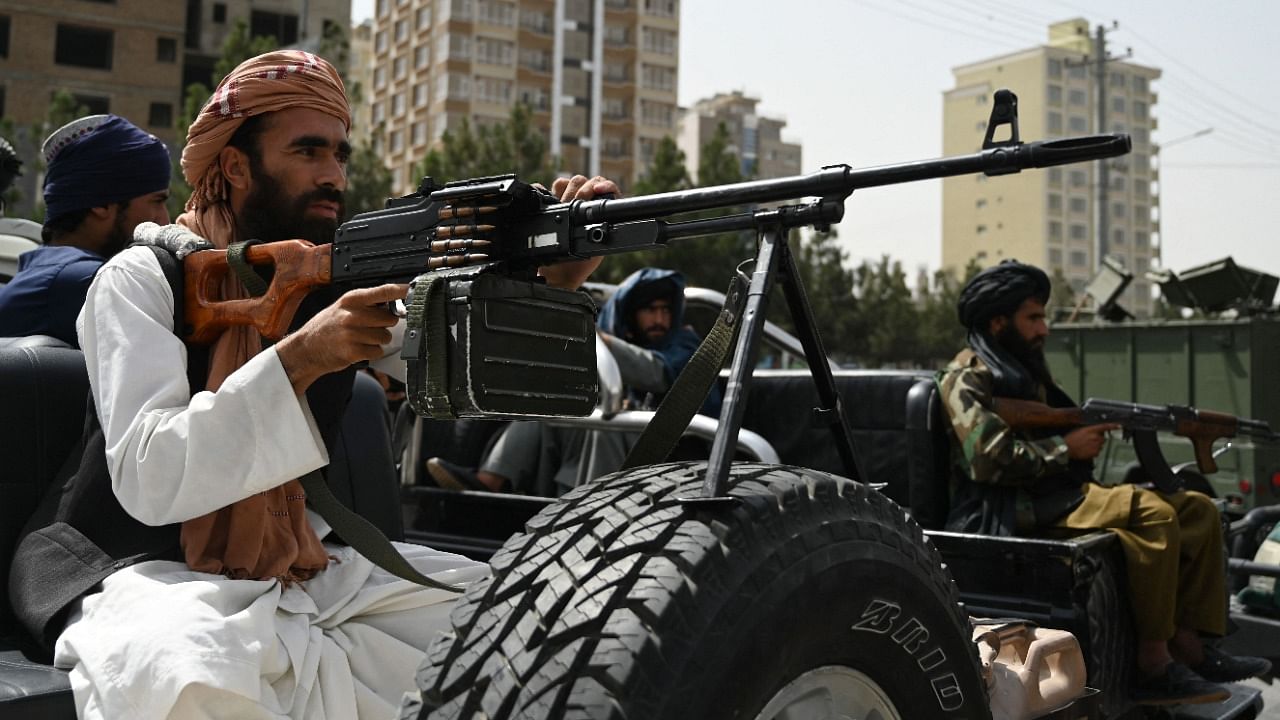
Formation of an interim government in Kabul consisting of only the members of the dreaded Taliban and the complete exclusion of members of other ethnic groups in Afghanistan poses a serious challenge to Indian security and diplomacy. It is becoming more complicated diplomatically for the rest of the world in general and India in particular to engage with the Taliban. Since their occupation of Kabul, there seems to be a lack of consistency between their rhetoric and action. It is being argued whether the Taliban have become moderate. But their behaviour and their articulated fundamental goals show there’s no such change.
The international community eagerly waited for the formation of an Afghan government post-US and NATO withdrawal with the expectation that the Taliban would form an inclusive government to restore normalcy and stability to the war-torn country. This expectation arose out of initial statements from the Taliban that sounded more rational, less brutal and indicated a desire on the part of the Taliban to seek international endorsement and recognition for the new government.
However, all expectations were belied when an announcement was made about the formation of the interim government consisting of only the Taliban leaders some of whom were notorious for their acts of terror and brutality.
It is clear that warring factions within the various Taliban sub-groups ultimately allowed Pakistan to interfere and the ISI chief dashed to Kabul and engineered an interim government that comprised of dreaded terrorists, such as Sirajuddin Haqqani. He has been the mastermind behind several terrorist activities aimed at India.
The statement by the Taliban that they would not play a part in Indo-Pakistan differences over Kashmir and would stay away from Sino-Indian border tensions sounds hollow. India needs to stay alert for surprise attacks and strategise with like-minded countries to prevent Taliban-ruled Afghanistan, terror-sponsoring Pakistan and terror-supporter China from creating a strategic troika in South and South-West Asia.
Pakistan has got yet another opportunity to build its long-dreamed “strategic depth”, China got a chance to shield its own human rights violations in Muslim-dominated Xinjiang province, and the Taliban government is expecting China to pump in money to ward off economic calamity in Afghanistan. It is surprising that despite China being a victim of its own policy on the Uighur uprising, it wants to support the Taliban, which in a way has made a link in Xinjiang.
Indian diplomacy seems to be in its best place to respond to the emerging security challenge. One of the indications of Indian diplomacy at work is the visit to Delhi by the CIA Chief and the chief of the Russian spy agency. The Taliban poses a clear threat to US security and other interests. Its claim that it would not allow the Al Qaeda and IS-K to operate from its territory is coming apart. Had it not been so, there would have been no need for the Biden administration to rush back 6,000 troops to secure Kabul airport and avenge the death of 13 US soldiers in a blast.
Russia has been aware of the Afghan situation and even before the departure of US and NATO forces, it sent troops to the Tajik border and conducted exercises to handle any spillover of the Afghan conflict. Moreover, New Delhi and Tehran are also exchanging notes and views to manage the situation. Indian policymakers are aware that if the Taliban does not intend to keep its promise on not allowing terrorist organisations to operate from Afghan soil, it will not go against the JeM and LeT, whose agents have already landed in Afghanistan, with the full knowledge and support of Pakistan.
There is no denying the fact that the Taliban will remain pivotal to global and regional instability. The Al-Qaeda, which seems to be dormant, could get activated. Once Al-Qaeda regains, with the support of Taliban, there are going to be serious challenges, and perhaps a great intensification in terrorist activities. The US and India will remain the top-most targets and hence there is an urgent necessity to see how the US and India can work together to contain the Taliban.
India has to be alert. It has to use all its capabilities to thwart any attempts made by the Taliban and Pakistan in the intensification of cross-border terrorism. The US will understand the deteriorating geopolitical environment of South Asia. It will have to part ways with Pakistan in due course and work with a single-minded aim to dismantle all the major terrorist groups located in Pakistan, Pakistan-Occupied Kashmir (POK) and Afghanistan.
Dealing with the Taliban will remain a challenging task. India needs to change how it operates – taking action at the right time rather than sharing dossiers and giving evidence to the very sponsors of terrorists.
India’s timely intervention will usher in both global and regional peace and stability. India will be successful in containing jihadi terrorism on its soil supported by Taliban and Pakistan if it has the will and the confidence to do so.
(Chintamani Mahapatra is Rector, Jawaharlal Nehru University; Arvind Kumar is Professor of United States’ Studies and chairs the Centre for Canadian, United States and Latin American Studies at the School of International Studies, JNU, New Delhi)